Related Research Articles
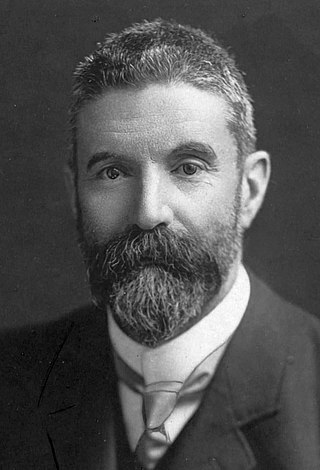
Alfred Deakin was an Australian politician who served as the second prime minister of Australia from 1903 to 1904, 1905 to 1908 and 1909 to 1910. He held office as the leader of the Protectionist Party, and in his final term as that of the Liberal Party. He is notable for being one of the founding fathers of Federation and for his influence in early Australian politics.
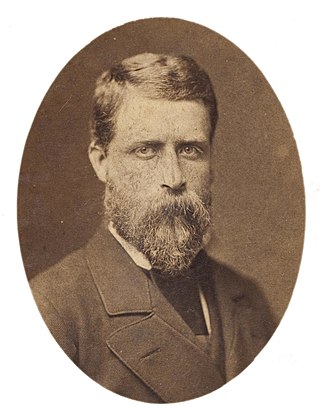
David Gaunson was an Australian politician and criminal solicitor who conducted the defence of the infamous Australian bushranger, Ned Kelly in the pre-trial stages.
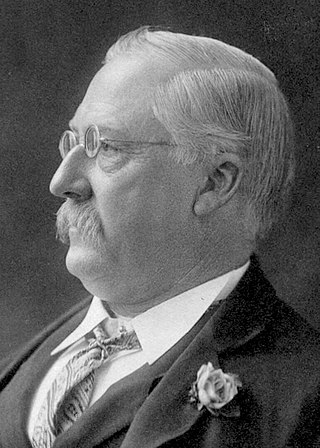
Sir George Turner was an Australian politician. He served two terms as Premier of Victoria, holding office from 1894 to 1899 and 1900 to 1901 as a liberal. After Federation he was invited by Edmund Barton to join the inaugural federal ministry, becoming the first Treasurer of Australia. He held office until 1904 under Barton and Alfred Deakin, then a few months later resumed office under George Reid. The government fell in 1905 and Turner retired from politics at the 1906 election.

Sir Austin Chapman was an Australian politician who served in the House of Representatives from 1901 until his death in 1926. He held ministerial office in the governments of Alfred Deakin and Stanley Bruce, serving as Minister for Defence (1903–1904), Postmaster-General (1905–1907), Minister for Trade and Customs, and Minister for Health (1923–1924).
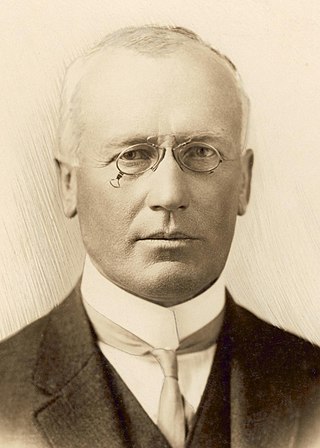
Sir William Hill Irvine was an Australian politician and judge. He served as Premier of Victoria (1902–1904), Attorney-General of Australia (1913–1914), and Chief Justice of Victoria (1918–1935).

Sir Littleton Ernest Groom KCMG KC was an Australian politician. He held ministerial office under four prime ministers between 1905 and 1925, and subsequently served as Speaker of the House of Representatives from 1926 to 1929.
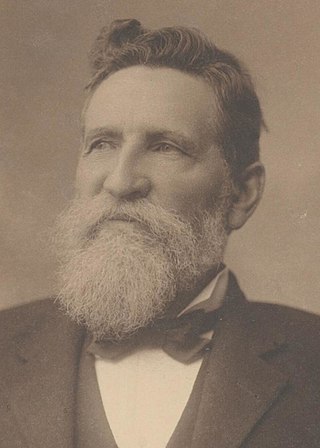
Allan McLean was an Australian politician who served as the 19th Premier of Victoria, in office from 1899 to 1900. He was later elected to federal parliament, where he served as a government minister under George Reid.

Sir Simon Fraser was a Canadian-Australian businessman, pastoralist, and politician. He was a Senator for Victoria from 1901 to 1913, having previously been a member of the colonial Parliament of Victoria.
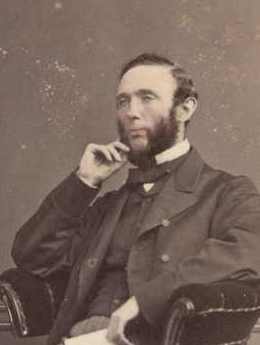
James Service, an Australian colonial politician, was the 12th premier of Victoria, Australia.

James Munro was a Scottish born Australian businessman and colonial politician, and the 15th Premier of Victoria. He is best known as one of the leading figures in the land boom of the 1880s and especially the subsequent crash of the early 1890s, where his Christian morals were seen to clash with his business activities.

George Swinburne was an Australian engineer, politician and philanthropist. He founded the institution which later became Swinburne University of Technology.
Theodore Fink was an Australian politician, newspaper proprietor and educationist.

Sir Frederick Thomas Sargood was an Australian politician, Minister of Defence and Education in the Government of Victoria from 1890 to 1892, and a senator in the Australian Senate 1901–03.
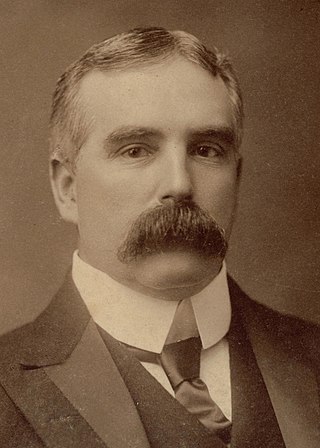
Sir Thomas Thomson Ewing KCMG was an Australian politician. He began his career in the New South Wales Legislative Assembly (1885–1901) before winning election to the Division of Richmond at the inaugural 1901 federal election. He held ministerial office in the second Deakin government as Vice-President of the Executive Council (1905–1906), Minister for Home Affairs (1906–1907), and Minister for Defence (1907–1908).

Sir Robert Wallace Best, KCMG was an Australian lawyer and politician who served in both the Senate and the House of Representatives. He was a Senator for Victoria from 1901 to 1910, and then represented the Division of Kooyong in the House of Representatives from 1910 to 1922. Best served in cabinet in the second and third governments of Alfred Deakin. Before entering federal politics, he also served in the Victorian Legislative Assembly from 1889 to 1901, where he was a government minister.
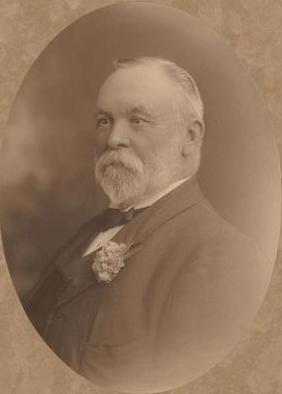
Joseph Tilley Brown was an English-born Australian politician.

Charles Carty Salmon was an Australian politician who served as the second speaker of the Australian House of Representatives from 1909 to 1910. A member Protectionist Party for most of his career, he was the member of parliament (MP) for the division of Laanecoorie from 1901 to 1913 and the division of the Grampians from 1915 until his death in 1917.

Robert Reid was a Scottish-born Australian politician. Born in Leven, Fife, he migrated to Australia, arriving in Hobson's Bay on the Ralph Waller from Liverpool on 7 April 1855, the ship having struck an iceberg near the Island of Desolation. He worked in the retail trade before becoming a businessman.
Sir James Lorimer was an Australian politician and businessman. He was the first chairman of the Melbourne Harbor Trust and a Member of the Legislative Council in the Victorian parliament from 1879 to 1889.
The South Street Society was an organisation based in Ballarat, Victoria, which conducted a series of performing arts contests and concerts originally styled the "South Street Competitions", which developed into the "Grand National Eisteddfod", later the Royal South Street Eisteddfod, not to be confused with the Ballarat Welsh Eisteddfods.
References
- 1 2 3 "Mr. James Bell". The Argus . Melbourne: National Library of Australia. 26 February 1908. p. 7. Retrieved 27 August 2014.
- 1 2 "Re-Member (Former Members)". State Government of Victoria. Retrieved 10 October 2012.
- 1 2 3 4 Dobbie, A. C. "Bell, James (1836–1908)". Australian Dictionary of Biography . Canberra: National Centre of Biography, Australian National University. ISBN 978-0-522-84459-7. ISSN 1833-7538. OCLC 70677943 . Retrieved 10 October 2012.
- 1 2 3 Mennell, Philip (1892). . The Dictionary of Australasian Biography. London: Hutchinson & Co – via Wikisource.